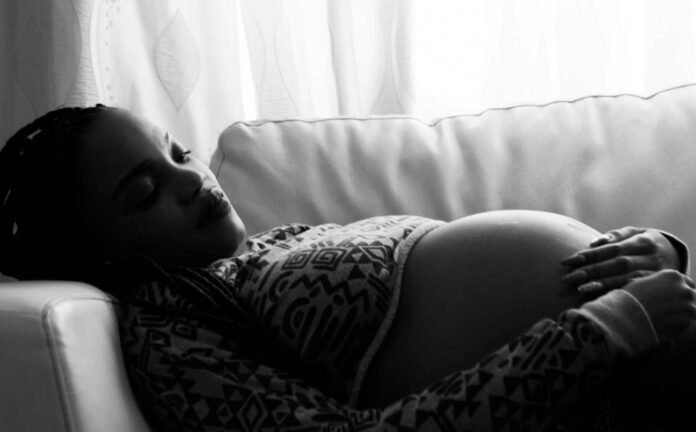Pregnancy is exciting and anticipated but can be challenging especially when it comes to sleep.
Sleeplessness during pregnancy can lead to seizures and understanding these risks and how to improve sleep is key to the health and well being of mom and baby.
How Sleeplessness Affects Pregnant Women
Sleep is important in general and even more so during pregnancy. But hormonal changes, physical discomfort and stress can disrupt sleep and lead to sleeplessness. These disruptions can affect a pregnant woman’s health.
Research:
National Sleep Foundation: Hormonal changes during pregnancy like increased progesterone can cause sleep disturbances and daytime fatigue.
The article “Pregnancy and Sleep: Common Issues & Tips for Sleeping” from the Sleep Foundation discusses the various sleep challenges faced by pregnant women. It highlights that hormonal changes, physical discomfort, and anxiety can cause sleep problems such as insomnia, obstructive sleep apnea, restless legs syndrome, and gastroesophageal reflux disorder.
The article emphasizes the importance of good sleep for maternal and fetal health and offers practical tips for improving sleep, including optimal sleeping positions, sleep hygiene practices, and treatments for specific sleep disorders.
For more detailed information, you can read the full article here: Pregnancy & Sleep: Common Issues & Tips for Sleeping (sleepfoundation.org)
American College of Obstetricians and Gynecologists (ACOG): Sleep disturbances are common during pregnancy and can lead to increased stress and anxiety which can worsen sleep problems (ACOG – Sleep Health and Disorders).
Sleeplessness and Seizures
Sleep deprivation can lower the seizure threshold, making seizures more likely especially in women with a history of epilepsy. During pregnancy, the risk is higher due to added stress and hormonal changes.
Research:
Epilepsy & Behavior: Sleep deprivation is a major trigger for seizures, especially generalized tonic-clonic seizures.
The article “Sleep Deprivation and Epilepsy” explores the intricate relationship between sleep and epilepsy, emphasizing how sleep deprivation can significantly impact the occurrence and severity of epileptic seizures. It highlights that sleep deprivation is a common trigger for seizures due to its effect on the brain’s electrical activity, which increases cortical excitability and the likelihood of epileptic episodes.
The article explains that during slow-wave sleep, the brain undergoes essential restorative processes that help regulate electrical activity. When these processes are disrupted due to lack of sleep, it can lead to heightened brain irritability and increased seizure activity.
Clinical observations have shown that sleep-deprived individuals with epilepsy experience more frequent and severe seizures. Specific epilepsy syndromes, such as Continuous Spike-Wave during Slow-Wave Sleep (CSWS) and Landau-Kleffner Syndrome, are particularly affected by sleep deprivation.
Management of sleep hygiene is crucial for reducing seizure frequency in epileptic patients. This includes maintaining consistent sleep schedules, reducing screen time before bed, and creating a conducive sleep environment. Ongoing research aims to better understand the interaction between sleep architecture and epilepsy, focusing on how different sleep stages affect seizure activity and developing interventions to improve sleep in individuals with epilepsy.
For more detailed information, you can access the full article here: Sleep Deprivation and Epilepsy (National Library of Medicine).
National Institute of Neurological Disorders and Stroke (NINDS): Inadequate sleep can impair cognitive function and increase seizure risk in people with epilepsy.
The article “Epilepsy and Seizures” from the National Institute of Neurological Disorders and Stroke provides a comprehensive overview of epilepsy, a chronic brain disorder characterized by recurrent seizures. It explains that seizures result from abnormal electrical activity in the brain, causing various symptoms such as involuntary movements and loss of consciousness.
The article discusses the different types of seizures (focal and generalized), their potential triggers (like stress and sleep deprivation), and the possible causes of epilepsy, including genetic factors, brain injuries, and infections. It also covers diagnostic methods and treatment options, such as medications, dietary changes, and surgery.
For more details, you can read the full article here: Epilepsy and Seizures (National Institute of Neurological Disorders and Stroke).
Managing Sleeplessness During Pregnancy
Managing sleep during pregnancy requires a multi-faceted approach. Here are some tips:
- Maintain a Consistent Sleep Schedule: Go to bed and wake up at the same time every day to regulate your body’s internal clock and improve sleep quality. Consistency is key to reinforcing your sleep-wake cycle.
- Create a Comfortable Sleep Environment: Make sure your bedroom is cool, dark and quiet. Use blackout curtains, earplugs or white noise machines if necessary. Invest in a comfortable mattress and pillows to enhance comfort.
- Develop a Relaxing Bedtime Routine: Establish a calming pre-sleep routine to signal to your body that it’s time to wind down. Activities like reading, taking a warm bath or practicing meditation can be helpful.
- Watch Your Diet: Avoid caffeine and big meals close to bedtime. If you’re hungry before bed, have light snacks and stay hydrated throughout the day.
- Stay Physically Active: Regular physical activity can promote better sleep. Aim for at least 30 minutes of moderate exercise most days but avoid vigorous activity close to bedtime.
- Manage Hot Flashes and Night Sweats: Dress in layers and use breathable bedding to stay cool at night. Keep a fan or cooling device by your bed to manage night sweats.
- Seek Professional Help: If sleep problems persist, consult a healthcare provider. They may recommend cognitive-behavioral therapy (CBT) for insomnia or other interventions to manage sleep disturbances.
Bottom Line
Sleeplessness during pregnancy can be serious and seizures are one of the risks. Knowing the causes and managing sleep can reduce the risks and lead to a healthier pregnancy. If sleep is still affecting your daily life, seek help to find the best solutions.
For further information on sleep and pregnancy, visit the National Sleep Foundation and the American College of Obstetricians and Gynecologists.
Additional Sources:
Dell’Aquila JT, Soti V. Sleep deprivation: a risk for epileptic seizures. Sleep Sci. 2022 Apr-Jun;15(2):245-249. doi: 10.5935/1984-0063.20220046. PMID: 35755914; PMCID: PMC9210558.
Malow BA. Sleep deprivation and epilepsy. Epilepsy Curr. 2004 Sep-Oct;4(5):193-5. doi: 10.1111/j.1535-7597.2004.04509.x. PMID: 16059497; PMCID: PMC1176369.
Sleep Sweet: Relaxation Techniques and Tips for Enhancing Sleep Quality During Pregnancy

Learn effective relaxation techniques and tips for enhancing sleep quality during pregnancy, including safe exercises and the recommended sleep positions, to support the mother’s and the developing baby’s physical and emotional well-being.
Continue reading: Tips for Enhancing Sleep Quality During Pregnancy
Sleep Soundly: Tips for Getting Better Sleep While Pregnant

Learn about the impact of sleeplessness during pregnancy, the importance of quality sleep during this critical time, common sleep issues faced by pregnant women, and practical tips for better sleep quality, including sleep positions, creating a sleep-conducive environment, lifestyle adjustments, and dietary considerations.
Continue reading: Tips for Getting Better Sleep While Pregnant



